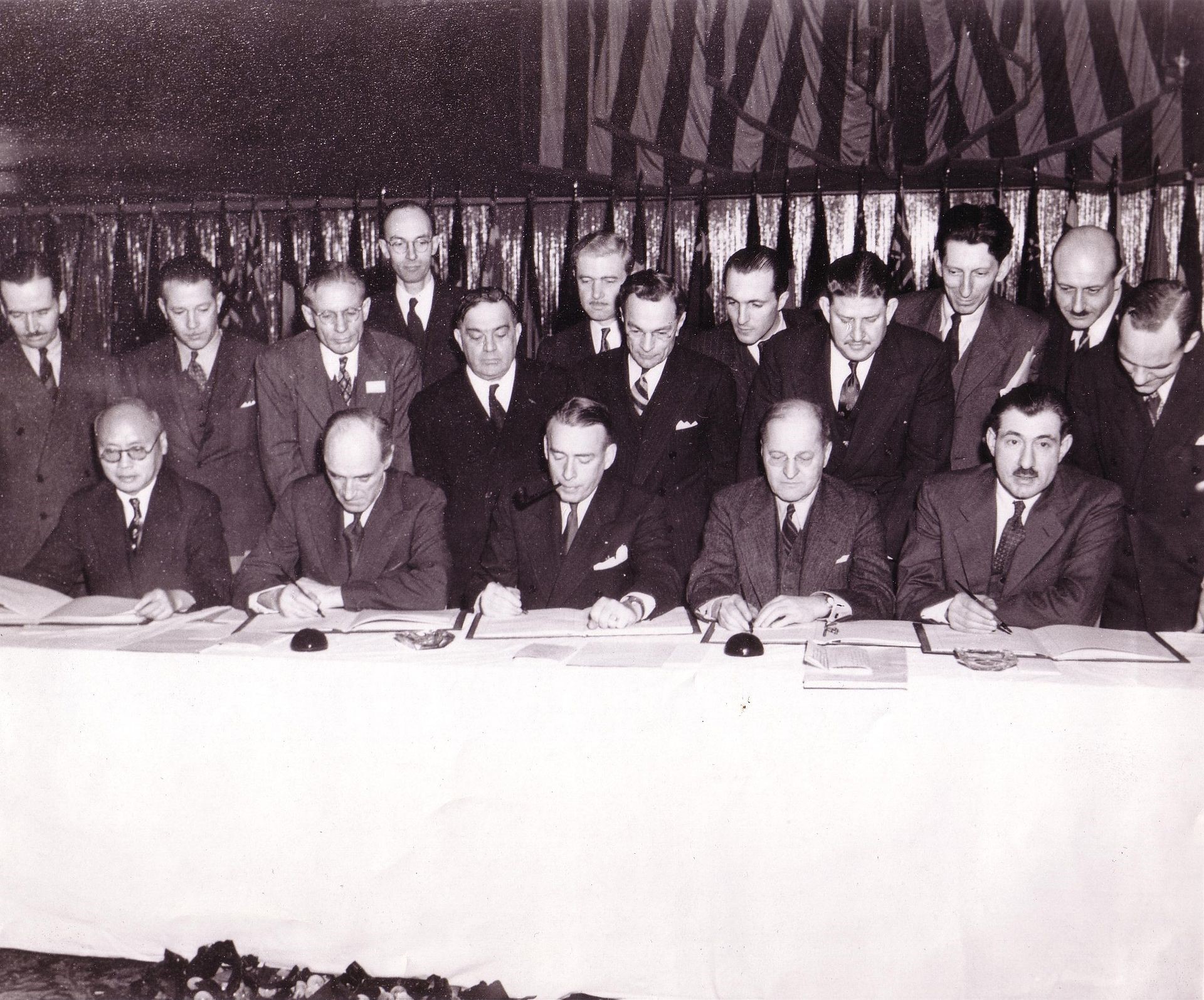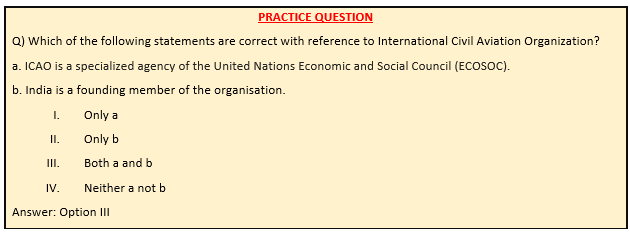Free Courses Sale ends Soon, Get It Now


Free Courses Sale ends Soon, Get It Now



Copyright infringement not intended
Context: Cabinet approves the ratification of three Protocols on Article 3 bis and Article 50 (a) & Article 56 relating to amendments in the convention on International Civil Aviation (Chicago Convention), 1944.
Details:
About the convention:
About the ICAO:
Some important articles are:

https://www.pib.gov.in/PressReleasePage.aspx?PRID=1901256
© 2024 iasgyan. All right reserved